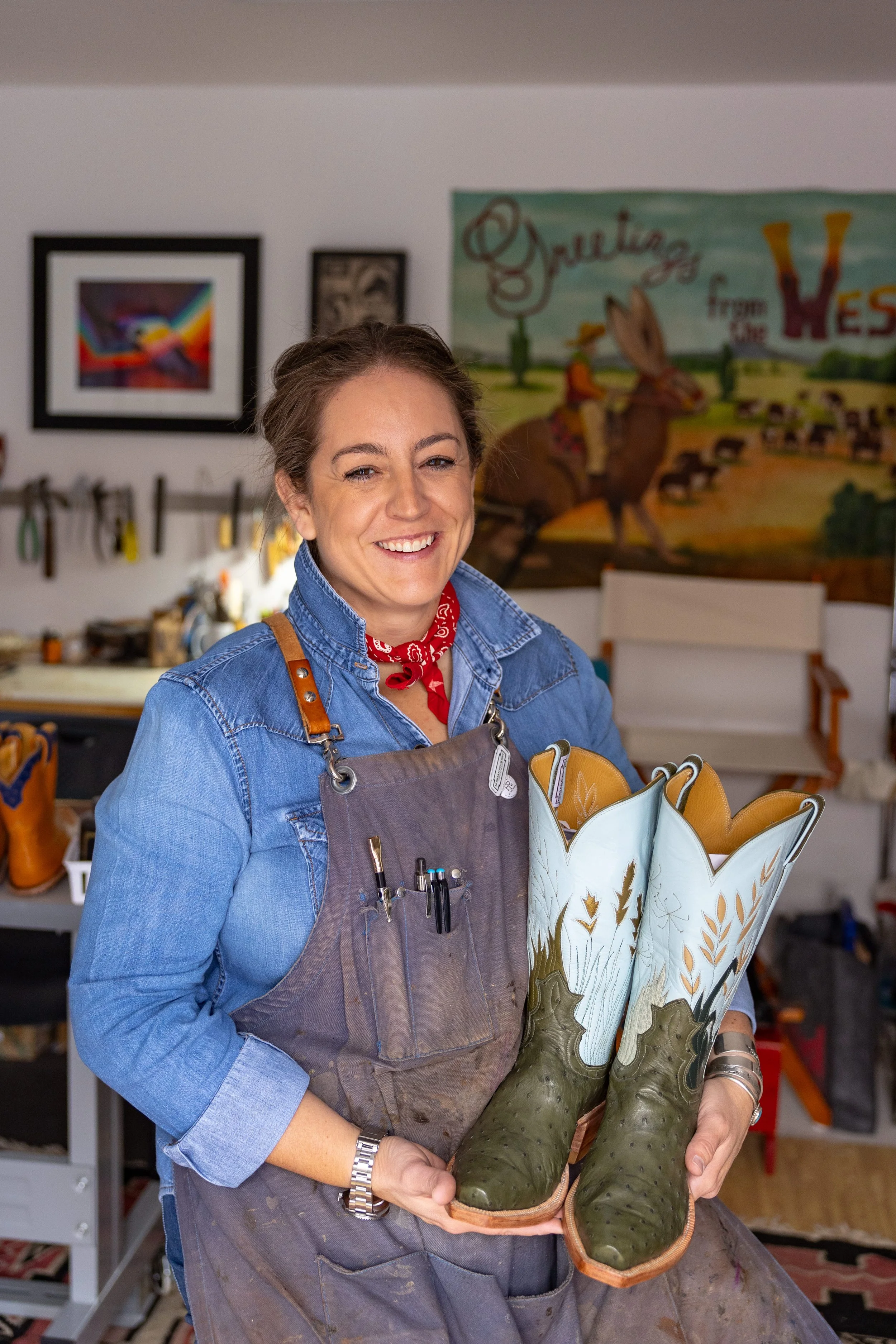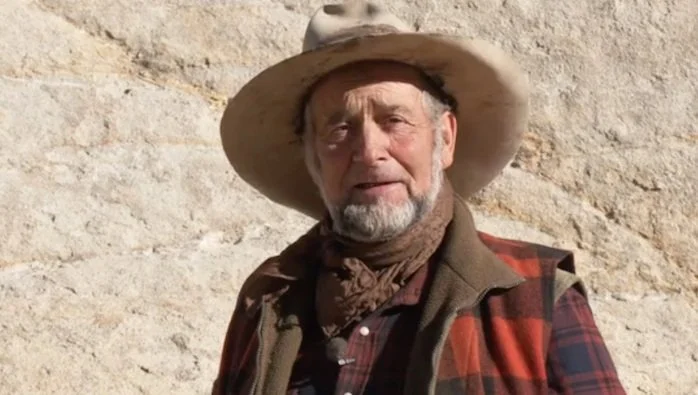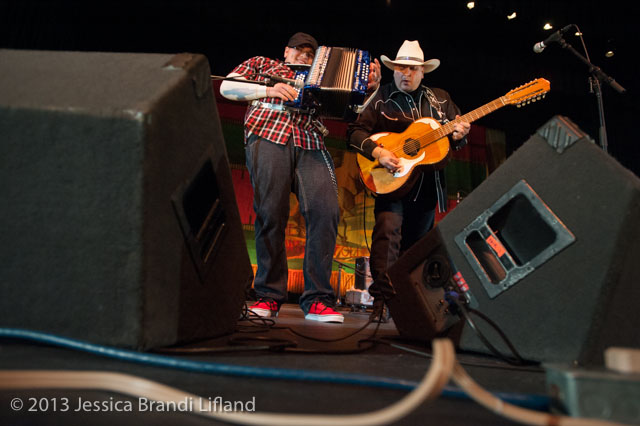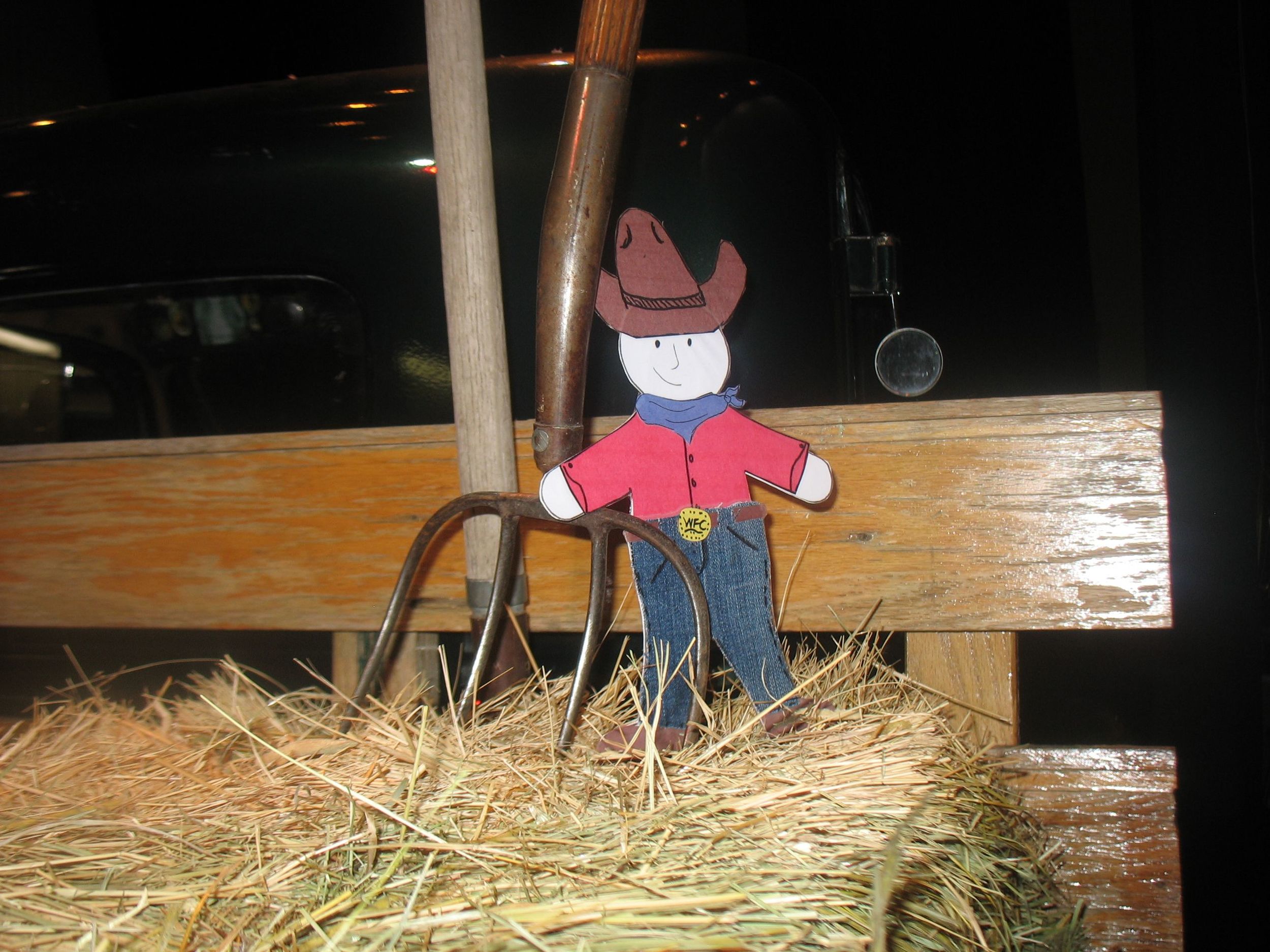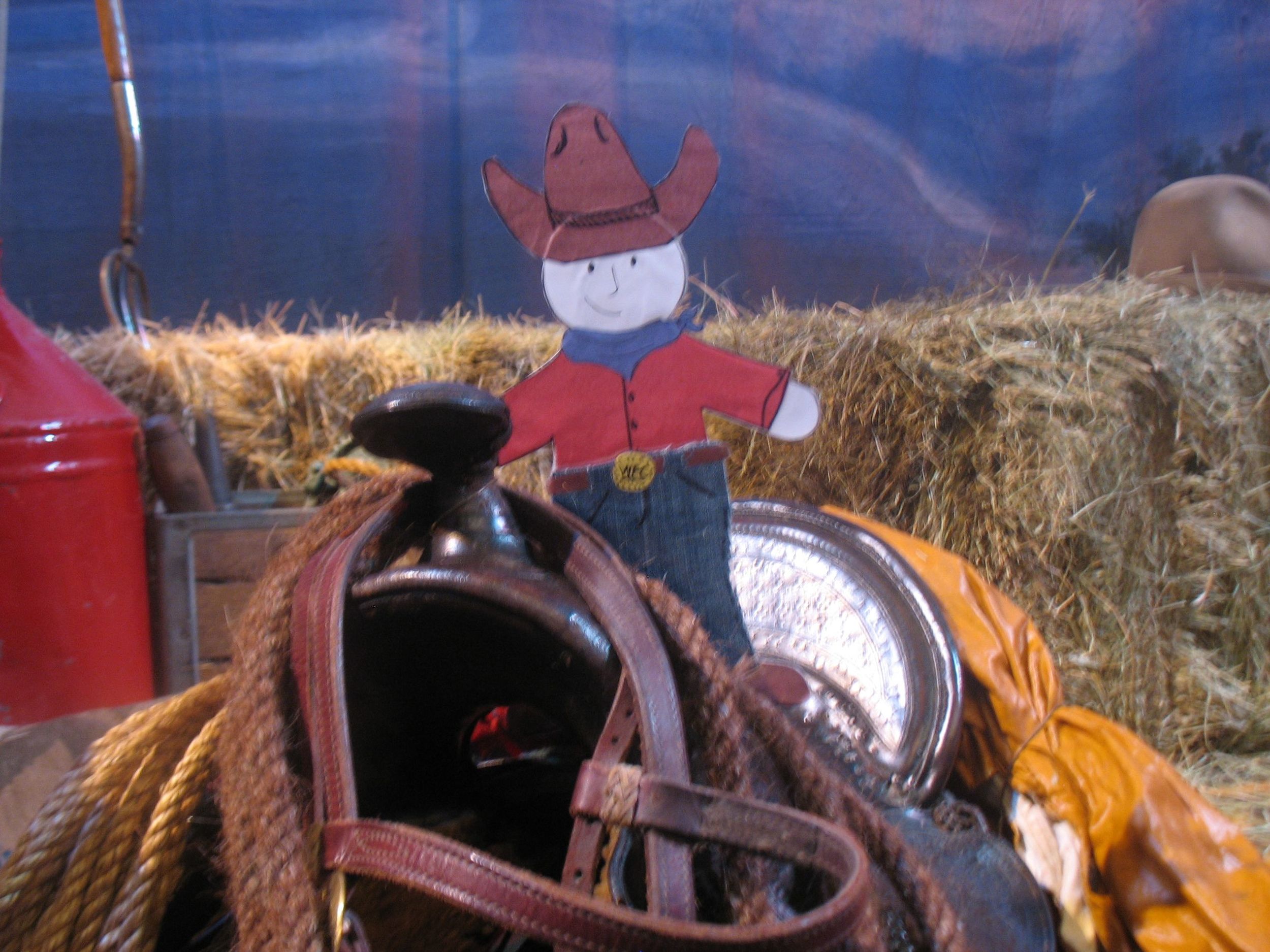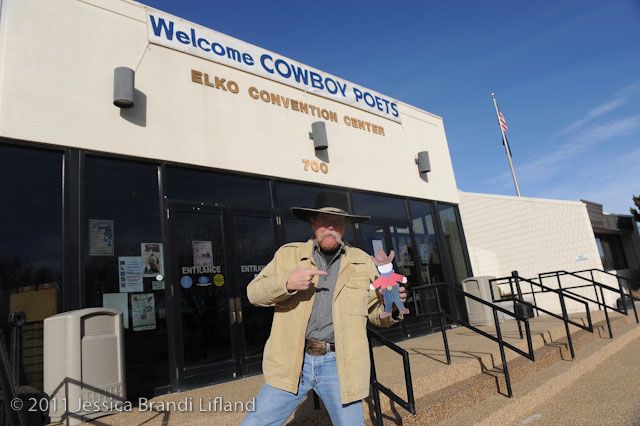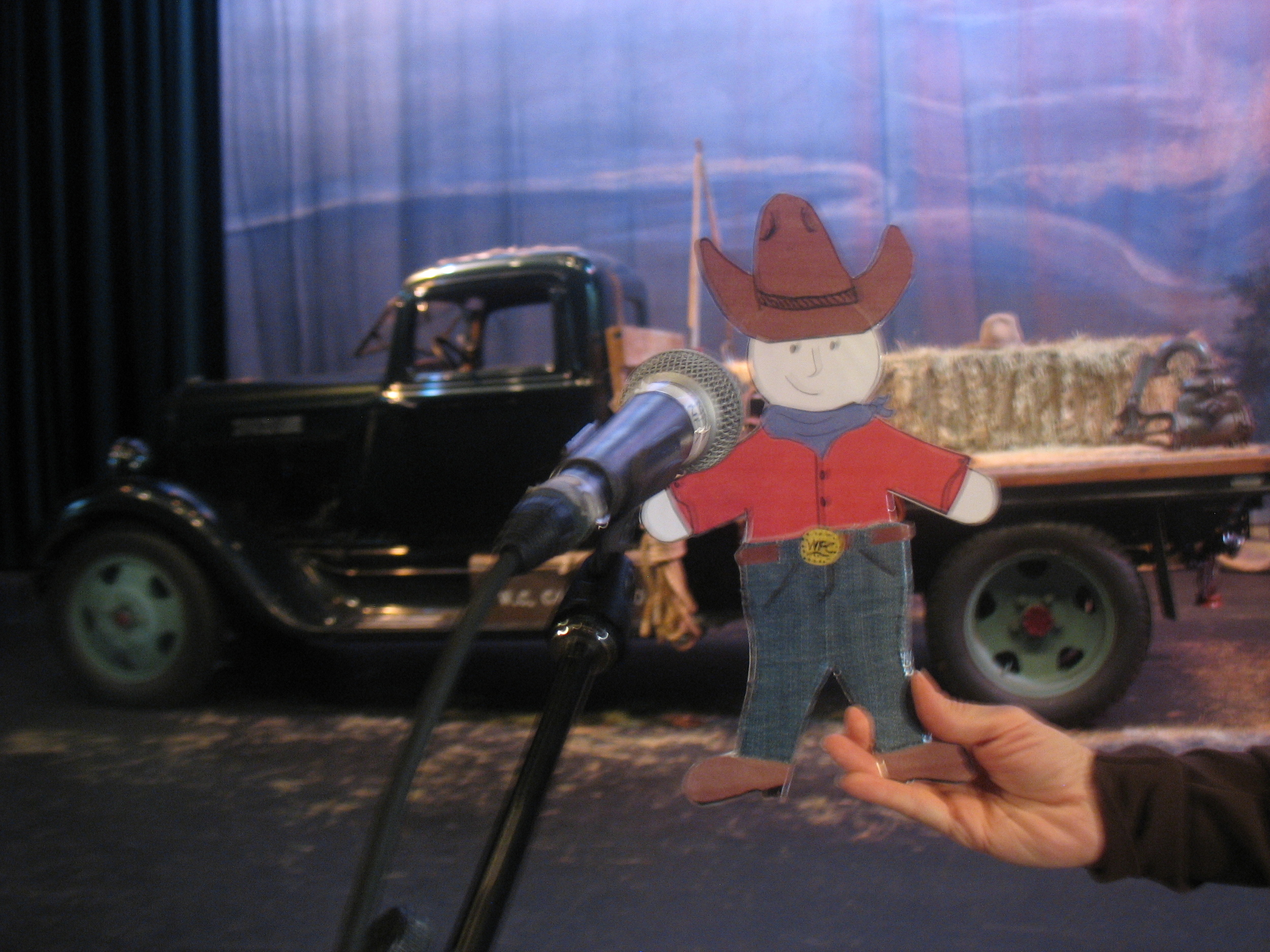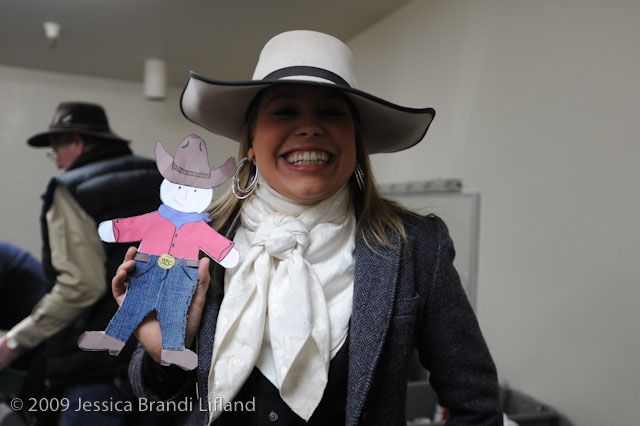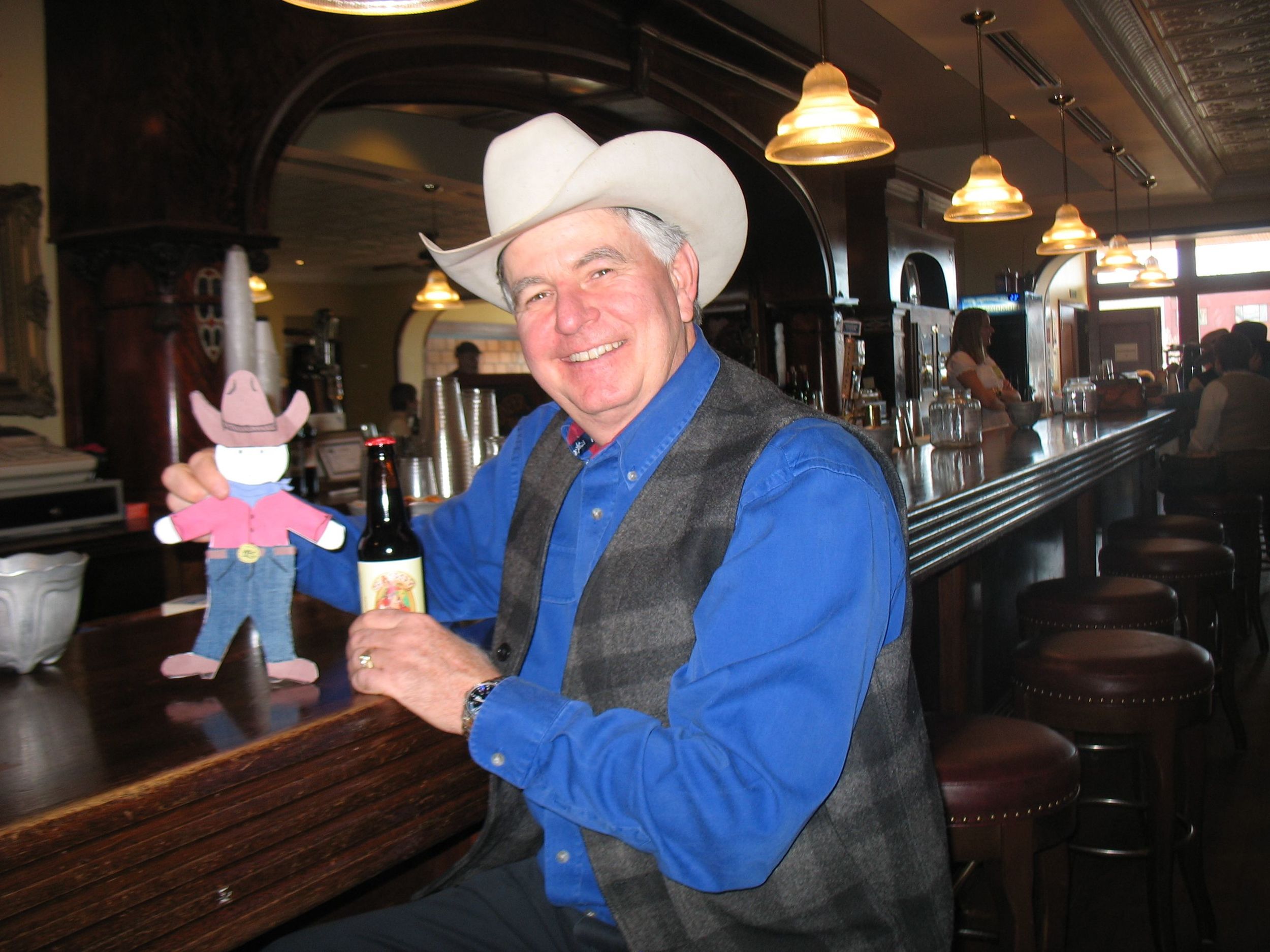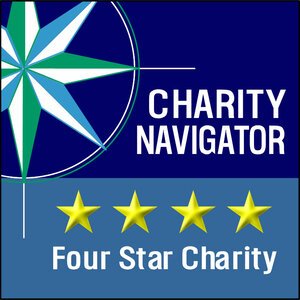Fifth year stage managing at the Gathering, evidently just long enough to start remembering names and faces, and putting them together in the right combinations. I rolled in on the train on Wednesday night, and wisely stopped at the Folklike Center Saloon before heading on to bed. The crowd was peppered with cowfolk who I knew, and it really did feel like a homecoming. Such high spirits at the Gathering, and not just from the spirits.
I made my rounds through the crowd, but did pack myself off to bed at a pretty reasonable time. Sensible. The Gathering is a marathon, not a sprint, after all.
I won't recount all the to-ing and fro-ing from the first day - backstage might be interesting a lot of the time, but there's also a lot of sitting and waiting, going in search of a trash can or some tape, then checking the clock and sitting some more.
I had the pleasure to be backstage for Judy Blunt's keynote speech this morning. A super-simple gig for a stage manager - no set changes, no 'wrap it up' handwaving, no greater organizing to be looked after than just "you're next, you're up." But it was a distinct pleasure to get to hear what Judy had to say.
She hit on a familiar mournful tone of loss for some of the older ways of western livestock culture. But just at the moment that I was starting to wonder if the first Gatherings were as focused on the loss of the past, Judy tossed a hard turn into her address and reminded us how grateful a lot of folks have been for much of the progress of the last hundred years, and reminded us to look forward to how we can preserve the spirit & passion of this culture even amid all the changes. She staked her opinions deep and declared them clearly. Afterwards, she commented that she was afraid she'd be met by pitchforks and torches, but I heard many more comments like Paul Zarzyski's, that Judy's speech had made him cry into his mustache.
I had the middle of my day free, so I wandered doing a few regular Elko things. Picking up some boot polish, eating a so-so sandwich, pressing on further to a great cup of coffee, impulsively buying a mouth harp.
As the afternoon arrived, I headed to my rest-of-the-day gig, stage managing for Ramblin' Jack Elliott's dinner theater show over at the Great Basin College theater.
The tech crew were amazing, as always, and all the volunteers absolutely eager to help. Getting the musicians set up went perfectly, and everybody had what they needed by the scheduled end of the sound check. Perfect.
We got the place set up, the instruments all in place, the levels all set, and the band had time enough to go over a couple tricky spots, then we retreated back stage to wait for the diners to get fed, relocated and re-settled.
The show is amazing, I highly recommend it to anyone who can find the time and a ticket. Jack mostly stuck to the set list, best as he could. But the moment dictates the song it needs, and sometimes concessions must be made. I bet no one out front could even tell that two of those songs the musicians had never played with him before, though.
Much as I unreservedly endorse that show, though, I have to say, wandering in an out of Jack's backstage monologue was certainly captivating and as entertaining as the music was. I had plenty to keep an eye on all over the theater, but when Jack starts a story, it's mighty hard to walk away.
I heard bits and pieces about offending Peter Fonda, doing a screen test for Dennis Hopper, making a geisha cry by singing Bob Dylan, and I learned that a clew is the corner of a boat's sail. Maybe you knew that, but it was news to me. I hated to interrupt, but it's best if everybody gets to hear how much time there is before the show starts, so I did have to interrupt once in a while.
I have another full day of keeping the shows on the rails tomorrow, so I better not linger too late on the blog. One last thing, though - if you run in to Van Dyke Parks, I strongly recommend you try to get one of his business cards. You'll be glad for it.
I hope to get a few backstage pics in my wanderings around Elko events tomorrow & hope to get them up with my next post. It can be an eerie half-light world, and surprisingly solitary despite the impending audience interactions.
Have fun out there everybody! More soon!
-Dan, stage manager


